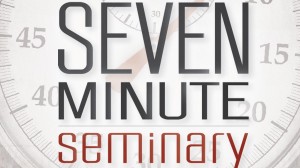
How Holy Communion Serves as Discipleship
It was here, in Holy Communion, that the Church saw fully and completely what the potential cost of discipleship entailed: death. And yet it was literal good news, because despite his death, Jesus Christ was currently present with them in this very act of Holy Communion. Read more from Steve Bruns’ series on the early church and discipleship.











